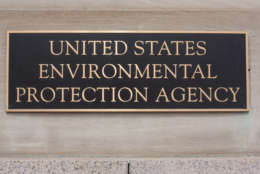Hiring/Retention
-
More than 3,500 people submitted applications ahead of the Homeland Security Department's latest major hiring event.
August 23, 2017 -
Comptroller General Gene Dodaro urges agencies to consider GAO's management recommendations as they implement their reform plans.
August 23, 2017 -
Involuntary moves can negatively affect employee morale, cause increased Senior Executive Service turnover and may hamper SES hiring.
August 22, 2017 -
In today's Federal Newscast, two senators are questioning how the Trump administration hired non-confirmed political appointees at the EPA and the Council on Environmental Quality.
August 21, 2017 -
Lindy Kyzer, senior editor for ClearanceJobs.com, helps you get to the bottom of challenges you and others may have with regards to security clearances.
August 16, 2017 -
Cybersecurity competitions are drawing more attention from and becoming more popular with federal agencies.
August 16, 2017 -
Former agency leaders urge collaboration, perseverance as government reorganization heads into fiscal 2018.
August 16, 2017 -
The EPA's watchdog says it missed the mark on some of the goals of an early retirement and buyout campaign.
August 15, 2017 -
This bill, the latest in a series of department-specific reforms, provides a good look at both the approach and the substance of reforms we should expect to see in the rest of the federal government.
August 15, 2017 -
Karen Evans, director of the U.S. Cyber Challenge, comments on the lack of cybersecurity expertise in government.
August 14, 2017 -
The National Initiative for Cybersecurity Education (NICE) program latest iteration helps turn work roles into codes.
August 11, 2017 What is the state of the federal job market? What can you do to increase your chances of landing a government job? Find out when Corliss Jackson, president and CEO of Federal Job Results, joins host Derrick Dortch on this week's Fed Access. August 18, 2017
August 10, 2017-
HUD, SBA, and DHS offer details on how they built their reorganization framework.
August 10, 2017 -
The Office of Personnel Management recently released new guidance for senior executives to help them to move their careers forward at any stage.
August 10, 2017 -
Officials from OPM and GAO say they are particularly interested in the thinking behind which skillsets agencies decide to keep through their reform plans.
August 10, 2017













